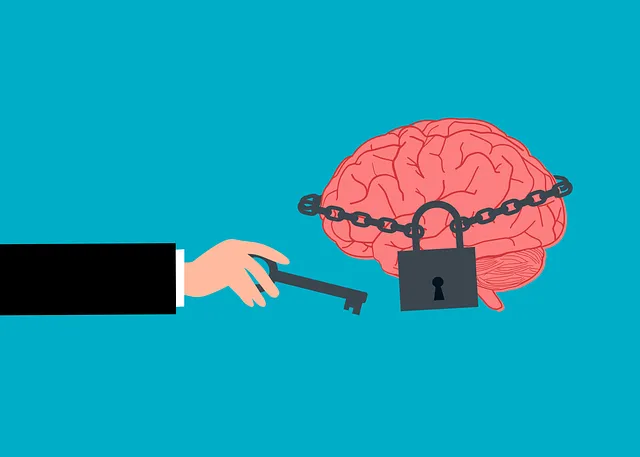Lone Tree Kaiser Permanente mental health facility's crisis intervention team (CIT) training programs enhance team preparedness with interactive workshops and scenario simulations. These sessions equip professionals in risk management, communication, assessment tools, and mood management, leading to improved acute episode handling, patient safety, and outcomes. The facility's successful case management of severe emotional distress underscores the program's effectiveness in trauma support, inspiring other healthcare institutions to prioritize similar initiatives for safer mental health environments.
Lone Tree Kaiser Permanente’s commitment to patient care extends beyond routine services with its dedicated Crisis Intervention Team (CIT). This article explores CIT training programs, focusing on their importance in mental health facilities like Lone Tree Kaiser Permanente. We’ll delve into the key components of effective training, strategies for team preparedness and response, and real-world case studies showcasing successful interventions. By understanding these elements, we can enhance crisis management within mental health care settings.
- Understanding Crisis Intervention Teams at Lone Tree Kaiser Permanente
- Mental Health Facility Training Programs: Key Components
- Effective Strategies for Team Preparedness and Response
- Case Studies: Success Stories from the Field
Understanding Crisis Intervention Teams at Lone Tree Kaiser Permanente

At Lone Tree Kaiser Permanente, a renowned mental health facility, Crisis Intervention Teams (CITs) play a pivotal role in ensuring swift and effective support for individuals experiencing severe emotional crises. These specialized teams are trained to handle high-stress situations with compassion and expertise, making them a game-changer in mental health care. The CIT approach focuses on immediate intervention, de-escalation techniques, and providing a safe space for individuals to navigate their distress.
Lone Tree Kaiser Permanente offers comprehensive CIT training programs tailored to equip staff, peers, and even family members with the necessary skills to intervene during a crisis. Participants learn crisis intervention guidance, self-care practices, and mental wellness journaling exercise guidance to enhance their ability to support others while maintaining their own emotional well-being. Through role-playing scenarios, workshops, and interactive sessions, trainees gain practical experience in managing acute mental health crises, fostering an environment of care and recovery at the facility.
Mental Health Facility Training Programs: Key Components

Mental Health Facility Training Programs play a pivotal role in equipping crisis intervention teams with the necessary skills to handle high-pressure situations effectively. At Lone Tree Kaiser Permanente mental health facility, these programs are meticulously designed to cover crucial aspects such as de-escalation techniques, active listening, and crisis assessment strategies. Participants learn how to recognize early warning signs of distress, implement evidence-based practices for calming individuals in a crisis, and facilitate open communication to build rapport and trust.
The key components of these training programs include rigorous simulations that mimic real-life scenarios, fostering an immersive learning experience. Additionally, Social Skills Training, Stress Reduction Methods, and Emotional Intelligence are emphasized to enhance the team’s ability to respond empathetically and efficiently. Through interactive workshops, role-playing exercises, and expert guidance, teams gain valuable insights into managing complex emotional situations while prioritizing safety for all involved.
Effective Strategies for Team Preparedness and Response

At Lone Tree Kaiser Permanente mental health facility, effective crisis intervention team (CIT) training programs prioritize comprehensive strategies to enhance team preparedness and response. These programs equip mental health professionals with crucial skills in risk management planning, enabling them to swiftly navigate challenging situations and provide optimal care during moments of heightened distress.
Through interactive workshops and real-life scenario simulations, CIT training fosters robust communication channels among team members. This collaboration ensures a coordinated response, improving overall effectiveness in managing acute mood episodes and promoting mental health awareness. By integrating risk assessment tools and mood management techniques into their repertoire, teams at Lone Tree Kaiser Permanente are better equipped to anticipate and defuse potential crises, ultimately enhancing patient safety and outcomes.
Case Studies: Success Stories from the Field

Crisis intervention team training programs have been transforming lives—a testament to their effectiveness is seen in real-world success stories from facilities like Lone Tree Kaiser Permanente mental health facility. These cases highlight how well-prepared teams can swiftly and effectively address acute situations, leading to positive outcomes for both patients and responders. For instance, the facility’s crisis intervention team successfully navigated a situation where an individual was experiencing severe emotional distress, utilizing coping skills development techniques to help them regain composure and find resolution.
The program’s emphasis on trauma support services played a pivotal role in this success story. By equipping team members with the knowledge and tools to provide immediate emotional support, Lone Tree Kaiser Permanente has demonstrated that timely intervention can significantly boost confidence and promote recovery. These success stories not only underscore the value of comprehensive crisis intervention training but also inspire other healthcare facilities to prioritize similar initiatives, ultimately fostering a safer and more supportive environment for those facing mental health challenges.
Crisis intervention team training is invaluable for any Lone Tree Kaiser Permanente mental health facility looking to enhance its preparedness and response capabilities. By incorporating key components such as evidence-based strategies, role-playing exercises, and debriefing sessions, facilities can ensure their teams are equipped to handle a range of crises effectively. The case studies presented in this article highlight successful implementations at various mental health facilities, demonstrating the positive impact of comprehensive training programs. Investing in crisis intervention team training is not just beneficial; it’s essential for fostering a safe and supportive environment for patients and staff alike.






